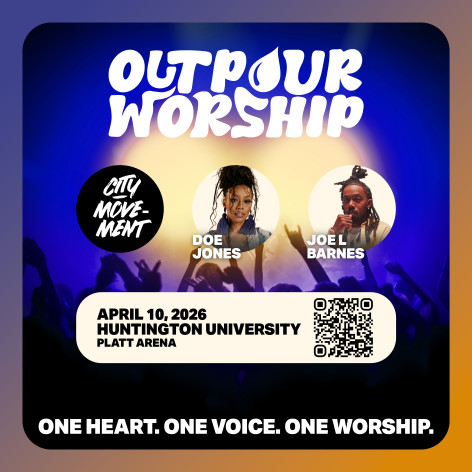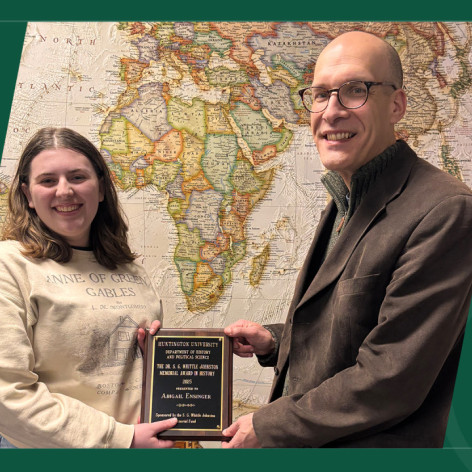Students, leaders serve in Biloxi over January Term
FOR RELEASE: Thursday, January 12, 2006
Huntington, Ind. "Shocked. Overwhelmed. Heartbroken. Students and leaders from Huntington University have spent the last 11 days immersed in the aftermath of Hurricane Katrina. Students and leaders clean up a cemetery in Biloxi. (Click for high resolution image.)
I think the students have been in shock. It's overwhelming. TV and media can give you one version, but to see it " you just can't imagine. They've been impacted by hearing the stories of people affected by the hurricane, said Martha Smith, the University's assistant dean of Student Development and co-leader for the trip.
The group of 37 traveled from Huntington, Ind., on Monday, January 2, 2006, to Biloxi, Miss., via charter bus to volunteer in the disaster relief effort.
The group continues clean-up efforts at the cemetery. (Click for high resolution.)
The devastation is absolutely overwhelming. It's unbelievable. The recovery is going to be an extremely slow process, Smith said.
The group partnered with Hands On USA, a non-profit organization that typically provides volunteers to communities during the first four months after a disaster. Hands On was scheduled to leave Biloxi in December but decided to stay on because of the need. Each day, the organization provides groups with seven to eight volunteer options.
Co-leaders Martha Smith, left, and Jule McKanna discuss a clean-up project. (Click for high resolution image.)
Since their arrival, students and leaders from the University have worked at the Biloxi Community Center giving out clothes, food, and blankets; at the Salvation Army Distribution Center handing out supplies; and at the Salvation Army Warehouse sorting clothes.
Among the most heart-breaking projects was the clean-up of a cemetery where some of the plots were missing.
A student came up to me crying and saying she was overwhelmed and couldn't imagine how she would feel if one of her family members was missing, Smith said.
The group also aided in sorting through artifacts at the storm ravaged Jefferson Davis home, now a museum. Davis was the president of the Confederacy during the Civil War. Students found a sword, rifle, a mouthpiece for a trumpet or bugle, medals, and coins.
The curator is just thrilled to death to have us here. Up to this point, he has had only two to four people at the most to help him sift through this. He was going through it brick by brick, Smith said.
Serving fellow volunteers has been another part of the experience. One night, the Huntington group cooked dinner for 185 people.
Aside from physical labor, the group has been challenged to listen to the stories of those affected by the hurricane.
I talked to one woman who had lost her father and her brother. They were staying in an attic, and they drowned. It's just the kind of story that makes you stop and listen. That's what we've been told. Sometimes the residents just want to share their story, Smith said.
Smith met a man named Lester while the group was cleaning streets. A father of eight children, he took his family to the attic to wait out the storm.
Lester said, 'You just learn to trust in God and nothing else matters. You need to tell your family and friends you love them every day. When something like this happens, you figure out what's important. The material things are just not important,' Smith said.
The University group will return to Huntington on Tuesday, January 17, 2006. The trip is being co-led by Smith and Jule McKanna, visiting instructor in exercise science. Other non-student volunteers include Kate Magro, resident director of Baker and Roush Halls, Erinn Caley, a 2003 alumnae, and Jill (Barry) Horvatch who attended the University.
Two students will receive credit for a social work practicum for their involvement. For the other 30 students, this is a non-credit experience.



